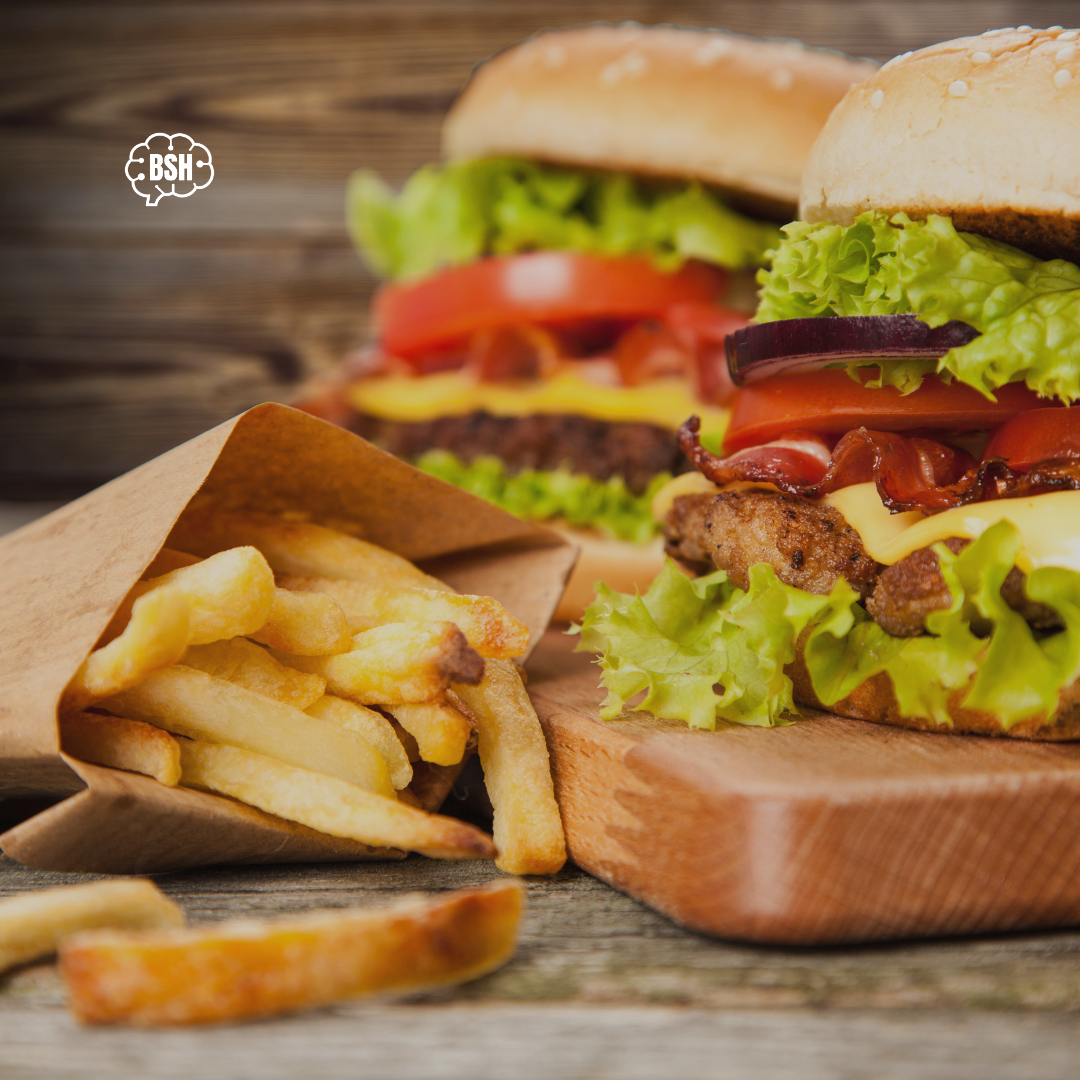You’ve probably heard this saying before: We are what we eat. But if there’s one phrase that takes this a little further, it’s the one said by Dr. Greg Eckel: We dig our own grave with our fork.
It’s well known that modernity is nutritionally divided into those (the majority) who eat a lot of ultra-processed foods and those who are aware of everything you’ll learn today in this article and choose much healthier foods to prolong their lives.
In the modern food industry, we encounter foods riddled with harmful additives and chemicals, but we continue to eat them, which deteriorates our health. If we understand the hidden dangers of these foods, we can regain our well-being.
The Lifestyle Epidemic
Over the past 50 years, Americans have become a poster child for how health can significantly worsen, primarily because of this issue. We could even say that today, 71% of Americans are overweight or obese, and 100 million of them are classified as obese. These alarming figures are directly related to the consumption of ultra-processed foods, which now kill more people prematurely than tobacco itself.
The bottom line is obvious: most chronic diseases are lifestyle-induced, and most heart attacks, strokes, and even cancers could be prevented by adopting healthier habits.
Let’s Learn About Ultra-Processed Foods
While processed foods are no longer the most beneficial for our diet, ultra-processed foods are the epitome of what could affect our health. These foods are industrially manufactured products that undergo extensive processing, stripping them almost entirely of their natural form. They often contain more than five unrecognizable ingredients (refined sugars, sodium, harmful fats, and artificial chemicals) designed to prolong the food’s shelf life and manipulate its flavor.
Some examples are fast food, sugary snacks, sodas, and pre-packaged meals. Although these foods may seem very convenient, they come at a high cost to our health.
Food Categories: Processed, Minimally Processed and Whole Foods
If you want to make healthier choices, get to know these food categories:
Ultra-processed foods:
Examples: chips, candy, soda, instant noodles, frozen meals.
Avoid these as much as possible, as they contain harmful chemicals, additives, and empty calories.
Minimally processed foods:
Examples: frozen vegetables, canned beans, plain yogurt.
These have slight modifications for convenience but retain most of their nutrients.
Whole foods:
Examples: fresh fruits, vegetables, whole grains, nuts, seeds, legumes, and unprocessed meat or fish.
These are nutrient-dense and support optimal health.
Side Effects of Processed Foods
As we mentioned, processed foods are packed with refined sugars, excess sodium, and unhealthy fats, so their constant or excessive consumption causes serious health problems such as:
- Obesity and weight gain: These foods are calorie-dense and not very satiating, which promotes excessive intake.
- Heart health: They have excess sodium, which causes high blood pressure, while trans fats increase bad cholesterol, which increases the risk of heart disease and stroke.
- Digestive problems: They lack fiber, which alters intestinal health, causing constipation, irritable bowel syndrome, and microbiome imbalances, ultimately affecting brain function.
- Cancer risks: Chemical additives and pro-inflammatory compounds in processed foods are scientifically linked to certain types of cancer.
- Mental health: Diets high in sugar and trans fats contribute to depression, anxiety, and mood swings, fueling dependency and overeating.
Nutritional Gap with Hidden Dangers
It’s no wonder that ultra-processed foods lack the essential nutrients the body needs to function optimally. During processing, these products lose vital vitamins, minerals, and fiber, leaving a nutritional gap. This deficiency leads to a weakened immune system, fatigue, and impaired brain function.
It’s important to note that small amounts of nutrient-dense foods, such as seaweed, can provide essential nutrients for the body, while ultra-processed foods do the complete opposite. Instead of fueling your health, they leave you vulnerable to many health problems.
Addiction by Design
Much like the tobacco industry’s manipulation of nicotine levels to create addiction, food manufacturers have perfected the “bliss point”—a combination of sugar, fat, and sodium—to keep you hooked. This addictive nature leads to overconsumption and weight gain, paving the way for obesity, type 2 diabetes, and cardiovascular disease.
Research reveals that added sugars not only contribute to weight gain but also lead to higher blood pressure, fatty liver disease, and an increased risk of heart attack and stroke. Sweet beverages, in particular, make it easy to consume excessive calories without feeling full, creating a vicious cycle of dependency.
Tips to Free Yourself From Processed Foods
Take small steps to control your health. Here we leave you practical advice to reduce your dependence on ultra-processed foods:
- Read the labels carefully. Avoid products with long ingredient lists or unrecognizable components. A simple rule is that if a product contains more than five ingredients that would not be found in your kitchen, it is likely to be ultra-processed.
- Prioritize comprehensive food. It incorporates fresh fruits, vegetables, whole grains, and lean proteins into its meals. These foods provide essential nutrients without harmful additives.
- Cook at home. Preparing food at home gives you total control over the ingredients. Experimenting with herbs, spices, and flavors will achieve delicious and natural flavors, making healthy eating pleasant.
- Choose dense options in nutrients. Add food full of nutrients, such as algae, nuts, and seeds, to your diet. These provide essential vitamins and minerals that support your body’s functions.
- Stop the sugary drinks. Replace soft drinks and energy drinks with water, herbal teas, or natural drinks with fruit infusion. This simple switch can significantly reduce its sugar intake.
- Keep your sodium in check. Reduce processed sandwiches and opt for low-sodium alternatives. Season your meals with herbs and spices instead of salt.
- Plan in advance. Meal preparation can help you avoid the temptation of convenience foods. Maintaining healthy snacks will also help satisfy cravings without compromising your health.
Claim your health
The truth is that processed foods are a silent threat to our health. Their impact is wide-ranging, from heart disease and obesity to mental health and cancer challenges. But the good news is that you have the power to make a change.
By prioritizing whole, dense foods that are rich in nutrients and making conscious decisions, you can protect your body and mind from the harmful effects of processed foods.
In Born Super Human, we believe that the magic we are looking for resides in the work we often avoid. So, it is time to face the reality of what is in our dishes and make decisions that feed a vibrant and healthy life. After all, we are more than what we eat; what we eat plays a fundamental role in who we become.





